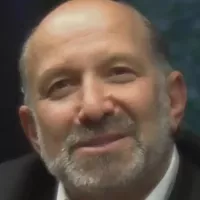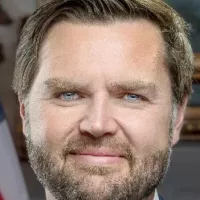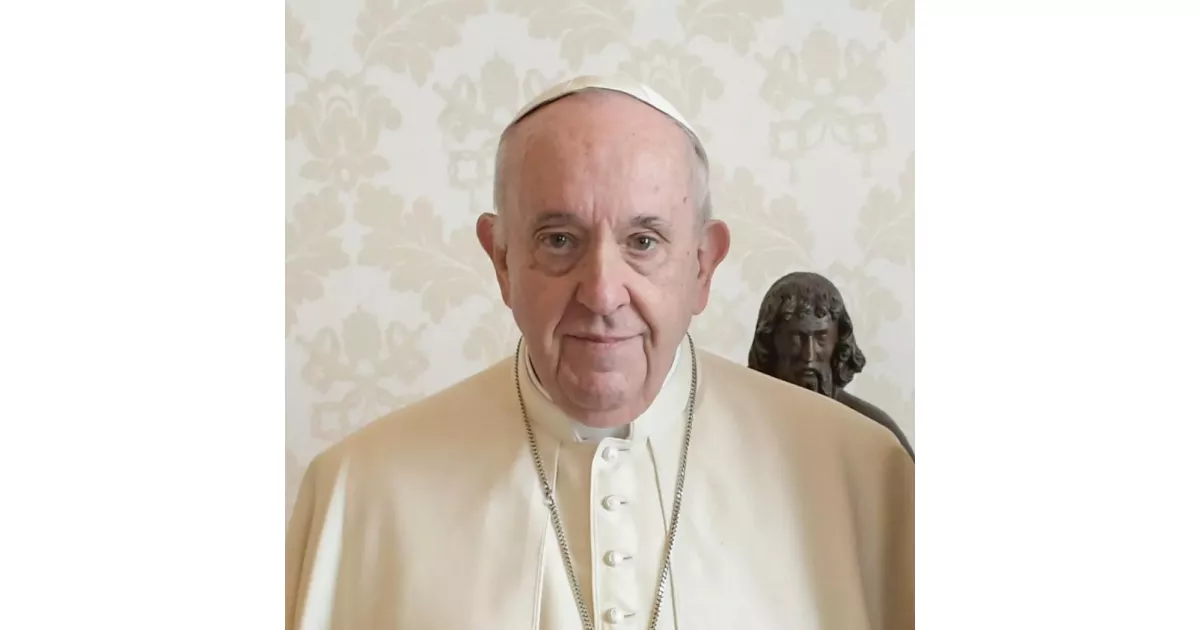From career breakthroughs to professional milestones, explore how Pope Francis made an impact.
Pope Francis served as the head of the Catholic Church and sovereign of the Vatican City State from March 13, 2013, until his death in 2025. He held the distinction of being the first Jesuit pope, the first pope from Latin America, and the first pope born or raised outside of Europe since the 8th century. His papacy marked a significant shift in the Church's leadership and geographical origins.
March 1958: Entered the Society of Jesus
On 11 March 1958, Jorge Mario Bergoglio entered the Society of Jesus as a novice after being inspired by a priest.
1958: Inspired to Join the Jesuits
In 1958, Jorge Mario Bergoglio was inspired to join the Jesuits after recovering from a severe illness.
March 1960: Became an Official Jesuit
On 12 March 1960, Jorge Mario Bergoglio officially became a Jesuit when he made his religious profession with the initial, perpetual vows of poverty, chastity, and obedience.
1964: Taught at Colegio de la Inmaculada Concepción
From 1964 to 1965, Jorge Mario Bergoglio taught literature and psychology at the Colegio de la Inmaculada Concepción in Santa Fe.
1965: Taught at Colegio de la Inmaculada Concepción
From 1964 to 1965, Jorge Mario Bergoglio taught literature and psychology at the Colegio de la Inmaculada Concepción in Santa Fe.
1966: Taught at Colegio del Salvador
In 1966, Jorge Mario Bergoglio taught literature and psychology at the Colegio del Salvador in Buenos Aires.
1967: Began Theological Studies
In 1967, Jorge Mario Bergoglio began his theological studies at Facultades de Filosofía y Teología de San Miguel.
December 1969: Ordained as Priest
On 13 December 1969, Jorge Mario Bergoglio was ordained as a priest by Archbishop Ramón José Castellano.
1969: Ordination as a Catholic Priest
In 1969, Jorge Mario Bergoglio was ordained as a Catholic priest.
April 1973: Took Final Vows as a Jesuit
On 22 April 1973, Jorge Mario Bergoglio took his final vows as a Jesuit, including the fourth vow of obedience to missioning by the pope, at Alcalá de Henares, Spain.
1973: Jesuit Provincial Superior
From 1973, Jorge Mario Bergoglio served as the Jesuit provincial superior in Argentina.
1979: End of Term as Provincial Superior
In 1979, Jorge Mario Bergoglio's six-year term as provincial superior of the Society of Jesus in Argentina ended.
1980: Rector of Philosophical and Theological Faculty of San Miguel
In 1980, Jorge Mario Bergoglio was named the rector of the Philosophical and Theological Faculty of San Miguel. He also spent the first three months of 1980 in Ireland to learn English.
1984: Testimony on San Patricio Church massacre
In 1984, testimony emerged indicating that the murders of six members of the Pallottine community in the San Patricio Church massacre were perpetrated by members of the Argentine Navy on the orders of Rear Admiral Rubén Chamorro. Cardinal Bergoglio authorized the request for beatification for the victims in 2005 and ordered an investigation.
1986: Replacement as Rector
In 1986, Jorge Mario Bergoglio was replaced as rector of the Philosophical and Theological Faculty of San Miguel by someone more in tune with the Society of Jesus's emphasis on social justice.
June 1992: Consecration as Auxiliary Bishop
On 27 June 1992, Jorge Mario Bergoglio was consecrated as titular bishop of Auca, becoming the Auxiliary Bishop of Buenos Aires. He chose 'Miserando atque eligendo' as his episcopal motto.
June 1997: Appointment as Coadjutor Archbishop
On 3 June 1997, Jorge Mario Bergoglio was appointed coadjutor archbishop of Buenos Aires.
February 1998: Became Metropolitan Archbishop
On 28 February 1998, Jorge Mario Bergoglio became the metropolitan archbishop of Buenos Aires following Quarracino's death.
November 1998: Named Ordinary for Eastern Catholics
On 6 November 1998, while remaining archbishop of Buenos Aires, Jorge Mario Bergoglio was named Ordinary for Eastern Catholics in Argentina.
1998: Archbishop of Buenos Aires
In 1998, Jorge Mario Bergoglio became the archbishop of Buenos Aires.
1999: Government Transition and Church Criticism
In 1999, Fernando de la Rúa replaced Carlos Menem as president of Argentina. As an archbishop, Bergoglio celebrated the annual Mass on the First National Government holiday. During Argentina's economic depression, the Catholic Church, including Bergoglio, criticized the government's austerity measures. De la Rúa asked the church to facilitate dialogue, but a meeting with Bergoglio was reportedly canceled.
February 2001: Made a Cardinal by Pope John Paul II
On 21 February 2001, Pope John Paul II made Archbishop Bergoglio a cardinal, assigning him the title of cardinal priest of San Roberto Bellarmino.
December 2001: Intervention During Riots
During the police repression of the riots in December 2001, Bergoglio contacted the Ministry of the Interior and requested that the police distinguish between rioters and vandals from peaceful protesters.
2001: Created a Cardinal
In 2001, Jorge Mario Bergoglio was created a cardinal by Pope John Paul II.
2001: Meeting with Ramón Puerta
In 2001, following the Justicialist Party's victory in Congress, Bergoglio met with Ramón Puerta, the newly appointed Senate president. Puerta assured Bergoglio that the party was not planning to oust President De la Rúa and promised to support him in advancing necessary legislation.
2004: Call for Political Dialogue
In 2004, during the First National Government holiday Mass at the cathedral, Bergoglio, in the presence of President Néstor Kirchner, requested more political dialogue, the rejection of intolerance, and criticism of exhibitionism and strident announcements.
November 2005: Elected President of Argentine Episcopal Conference
On 8 November 2005, Jorge Mario Bergoglio was elected president of the Argentine Episcopal Conference for a three-year term.
2005: Potential Pontifical Name
Bergoglio, if elected in 2005, would have chosen the pontifical name of "John XXIV" in honor of John XXIII. He expressed admiration for the Good Pope John XXIII to Cardinal Francesco Marchisano.
2005: Authorization for Beatification and Investigation of Murders
In 2005, Cardinal Bergoglio authorized the request for beatification for six members of the Pallottine community murdered in the San Patricio Church massacre. Bergoglio also ordered an investigation into the murders, which testimony from 1984 suggested were perpetrated by members of the Argentine Navy.
2006: Support for Joaquín Piña's Election
In 2006, Bergoglio helped fellow Jesuit Joaquín Piña win the elections in the Misiones Province, preventing an amendment to the local constitution that would allow indefinite re-elections. This was a setback for President Kirchner's plans to implement similar amendments nationally.
November 2008: Re-elected President of Argentine Episcopal Conference
On 11 November 2008, Jorge Mario Bergoglio was re-elected president of the Argentine Episcopal Conference.
2008: Call for National Reconciliation
In 2008, Bergoglio called for national reconciliation during disturbances in Argentina's agricultural regions, which the government interpreted as a support for anti-government demonstrators, further straining his relationship with the government.
2010: Political Rivalry with Kirchner
Until his death in 2010, President Néstor Kirchner considered Bergoglio as a political rival due to Bergoglio's opposition to Kirchner's political projects and attempts to amend the constitution.
December 2011: Submitted Resignation as Archbishop
In December 2011, upon turning 75, Jorge Mario Bergoglio submitted his resignation as archbishop of Buenos Aires to Pope Benedict XVI as required by canon law.
2012: Vatican's Opinion on the sisters' group
In 2012, the Vatican formed the opinion that the US Leadership Conference of Women Religious had some feminist influences, focused too much on ending social and economic injustice and not enough on stopping abortion, and permitted speakers who questioned church doctrine.
March 2013: Election as Pope Francis
On March 13, 2013, Bergoglio was elected pope on the fifth ballot, taking the papal name Francis. The announcement was delivered by Cardinal Jean-Louis Tauran.
March 2013: First Audience and Choice of Papal Name
On March 16, 2013, at his first audience, Francis explained he chose his papal name in honor of Saint Francis of Assisi due to his concern for the poor, inspired by Cardinal Cláudio Hummes's words during the conclave.
March 2013: Papal Inauguration
On March 19, 2013, Francis held his papal inauguration in St. Peter's Square, celebrating Mass in the presence of political and religious leaders and focusing his homily on the Solemnity of Saint Joseph.
March 2013: First Urbi et Orbi Easter Address
On March 31, 2013, Francis used his first Urbi et Orbi Easter address to make a plea for world peace and spoke out against greed. He also requested for humanity to become a better guardian of creation by protecting the environment.
April 2013: Formation of Council of Cardinal Advisers
On April 13, 2013, Francis named eight cardinals to a new Council of Cardinal Advisers to advise him on revising the organizational structure of the Roman Curia.
May 2013: First Canonizations of Pontificate
On 12 May 2013, Pope Francis presided over the first canonizations of his pontificate in which he canonized the Martyrs of Otranto—Antonio Primaldo and his 812 companions—as well as religious sisters Laura of St. Catherine of Siena and María Guadalupe García Zavala.
June 2013: Publication of Lumen fidei
On 29 June 2013, Pope Francis published the encyclical Lumen fidei, which was largely the work of Benedict XVI but awaited a final draft at his retirement.
July 2013: "Who am I to judge?" statement
In July 2013, Pope Francis' televised "Who am I to judge?" statement regarding LGBTQ individuals was widely reported and became one of his most famous statements.
November 2013: Publication of Evangelii gaudium
On 24 November 2013, Pope Francis published his first major letter as pope, the apostolic exhortation Evangelii gaudium, which he described as the programmatic of his papacy.
2013: Reaffirmation of Reform Program for US Leadership Conference of Women Religious
In 2013, Francis initially reaffirmed the Congregation for the Doctrine of the Faith's programme to reform the US Leadership Conference of Women Religious, which had been initiated under Pope Benedict XVI.
January 2014: Changes to Vatican Bank Oversight
In January 2014, Francis replaced four of the five cardinal overseers of the Vatican Bank, continuing efforts to reform the bank and address allegations of corruption and money laundering. Ernst von Freyberg was put in charge.
January 2014: Restriction on the Appointment of Monsignors
In January 2014, Pope Francis said that he would appoint fewer monsignors and only assign those honored to the lowest of the three surviving ranks of monsignor, chaplain of His Holiness; it would be awarded only to diocesan priests at least 65 years old.
February 2014: First Consistory
In February 2014, Pope Francis held his first consistory, a rare occasion in which he publicly appeared with his predecessor, Benedict XVI.
September 2014: Francis presides over first joint public wedding ceremony
On 14 September 2014, Pope Francis presided over his first joint public wedding ceremony in a Nuptial Mass for 20 couples from the Archdiocese of Rome.
December 2014: Restoration of diplomatic relations between the US and Cuba announced
On December 17, 2014, the restoration of full diplomatic relations between the US and Cuba was announced, with Pope Francis playing a key role in the talks. The Pope and the Government of Canada served as behind-the-scenes brokers of the agreement.
2014: Synod on the Family
In 2014, Francis oversaw a synod on the family, contributing to discussions and decisions regarding family-related issues within the Church.
April 2015: Closure of Investigation into US Leadership Conference of Women Religious
In April 2015, the Vatican's investigation into the US Leadership Conference of Women Religious was brought to a close. The sisters' emphasis on social justice aligned with Francis's priorities.
May 2015: Release of Laudato si'
In May 2015, Pope Francis released his major encyclical on the environment, Laudato si' (Praise be to you).
June 2015: Publication of Laudato si'
On 18 June 2015, Pope Francis published his first own encyclical Laudato si' concerning care for the planet.
September 2015: Francis Addresses UN General Assembly and Visits 9/11 Memorial
In September 2015, Pope Francis visited the United Nations Headquarters in New York City, where he addressed the UN General Assembly. Following his speech, he visited the National September 11 Memorial and Museum.
September 2015: Anticipated Visit by Francis to the US
The closure of the Vatican's investigation into the US Leadership Conference of Women Religious in April 2015 may have anticipated a visit by Francis to the US in September 2015.
2015: European migrant crisis
In 2015, the European migrant crisis was a major issue, leading to Pope Francis, along with Ecumenical Patriarch Bartholomew and Archbishop Ieronimos II of Athens, visited the Moria refugee camp on the Greek island of Lesbos in order to call the attention of the world to the migrant crisis.
April 2016: Visit to Moria refugee camp on Lesbos
In April 2016, Pope Francis, along with Ecumenical Patriarch Bartholomew and Archbishop Ieronimos II of Athens, visited the Moria refugee camp on the Greek island of Lesbos to call attention to the 2015 European migrant crisis and signed a joint declaration.
April 2016: Publication of Amoris laetitia
On 8 April 2016, Pope Francis published his second apostolic exhortation, Amoris laetitia, remarking on love within the family, which led to controversy.
November 2016: Establishment of World Day of the Poor
On 20 November 2016, Pope Francis established the World Day of the Poor in his Apostolic letter, Misericordia et Misera, to celebrate the end of the Extraordinary Jubilee of Mercy.
May 2017: Appointment of Fra' Giacomo Dalla Torre del Tempio di Sanguinetto
In May 2017, Fra' Giacomo Dalla Torre del Tempio di Sanguinetto was appointed leader of the Sovereign Military Order of Malta, following the resignation of Matthew Festing.
January 2018: Francis supports Yazidi refugees
In January 2018, Pope Francis met with Yazidi refugees in Europe, expressing his support for their right to religious freedom and urging the international community to address the Yazidi genocide.
March 2018: Publication of Gaudete et exsultate
On 19 March 2018, Pope Francis published the apostolic exhortation Gaudete et exsultate (Rejoice and be glad), dealing with "the call to holiness" for all persons, countering contemporary versions of the gnostic and Pelagian heresies.
2018: Synod on Youth
In 2018, Francis oversaw a synod on youth, focusing on issues and challenges faced by young people in the Church and the world.
2018: Revision of Catechism on Death Penalty
In 2018, Pope Francis revised the Catechism of the Catholic Church to state that the death penalty is "inadmissible".
February 2019: Francis Visits Abu Dhabi and Celebrates Mass on the Arabian Peninsula
In February 2019, Pope Francis visited Abu Dhabi, United Arab Emirates, at the invitation of Mohammed bin Zayed Al Nahyan, becoming the first pope to celebrate Mass on the Arabian Peninsula, with over 120,000 attendees at the Zayed Sports City Stadium.
February 2019: Document on Human Fraternity signed
On February 4, 2019, Pope Francis and Ahmed el-Tayeb, Grand Imam of Al-Azhar, signed the Document on Human Fraternity for World Peace and Living Together, which focuses on peaceful coexistence between different faiths, inspiring the International Day of Human Fraternity. Criticisms arose regarding the passage about God's will and the diversity of religions.
May 2019: Promulgation of Vos estis lux mundi
On 9 May 2019, as a follow-up to the summit on clergy sexual abuse, Pope Francis promulgated the motu proprio Vos estis lux mundi, which specified responsibilities, including reporting directly to the Holy See.
December 2019: Abolishment of "pontifical secrecy" privilege in sexual abuse cases
In December 2019, Pope Francis abolished the "pontifical secrecy" privilege in sexual abuse cases, clarifying that bishops do not need authorization from the Vatican to turn over canonical trials materials to civil law enforcement authorities.
2019: Synod on the Church in the Amazon Region and Episcopalis communio
In 2019, Francis oversaw a synod on the church in the Amazon region and issued the apostolic constitution Episcopalis communio, allowing synod documents to become magisterial teaching with papal approval and enabling laity input.
2019: Statue in St. Peter's Square
In 2019, Pope Francis placed a statue in St. Peter's Square to bring attention to the Christian imperative involved in the situation of refugees and migrants.
October 2020: Publication of Fratelli tutti
On 4 October 2020, Pope Francis published the encyclical Fratelli tutti on fraternity and social friendship.
November 2020: Francis writes op-ed for The New York Times
On 26 November 2020, Pope Francis became the first pope to write an op-ed for The New York Times, addressing issues such as COVID-19 restrictions and the need for global solidarity.
2020: Reiteration of Opposition to Death Penalty
In his 2020 encyclical Fratelli tutti, Pope Francis repeated that the death penalty was "inadmissible", and that "there can be no stepping back from this position."
January 2021: Instituting Women to Ministries and Appointing Women to Vatican Positions
In January 2021, Pope Francis issued Spiritus Domini, allowing bishops to institute women to the ministries of acolyte and lector, and appointed women to several positions previously held only by men.
March 2021: Francis meets Grand Ayatollah Ali al-Sistani in Iraq
In March 2021, Pope Francis held a historic meeting with Iraq's top Shi'ite cleric, Grand Ayatollah Ali al-Sistani, and visited Ur, traditionally identified as the birthplace of the prophet Abraham. They both urged Muslim and Christian communities to work together for peaceful coexistence.
June 2021: Publication of Pascite gregem Dei
On 1 June 2021, Pope Francis published the apostolic constitution Pascite gregem Dei, reforming Vatican penal law by strengthening the penalties for sexual abuse and financial crimes.
January 2022: Statement on the Death Penalty to Vatican Ambassadors
On 9 January 2022, Pope Francis stated in his annual speech to Vatican ambassadors that "The death penalty cannot be employed for a purported state justice."
October 2022: Francis appeals to Putin and Zelenskyy regarding the war in Ukraine
In October 2022, Pope Francis directly appealed to Russian President Putin to halt the "spiral of violence and death" in Ukraine. He also asked Ukrainian President Zelenskyy to consider "serious peace proposals", while acknowledging the suffering of the Ukrainian people and recognizing Ukraine had suffered an aggression.
2022: Apology for Church's Role in Cultural Genocide
In 2022, Pope Francis apologized for the Catholic Church's role in the cultural genocide of Canadian Indigenous peoples in residential schools.
January 2023: Denouncement of Criminalization of Homosexuality
In a January 2023 interview with the Associated Press, Pope Francis denounced the criminalization of homosexuality (which he called "unjust") and called on the Catholic Church to distinguish between a sin and a crime.
April 2023: Women Allowed to Vote at Synod of Bishops
In April 2023, Pope Francis announced that 35 women would be allowed to vote at the Sixteenth Ordinary General Assembly of the Synod of Bishops, marking the first time women are allowed to vote at any Catholic Synod of Bishops.
April 2023: Francis announces secret "mission" for peace
In April 2023, during a trip to Budapest, Pope Francis announced he was working on a secret "mission" aimed at bringing peace and facilitating the return of Ukrainian children abducted by Russia. However, these efforts to position the Vatican as a mediator ultimately failed.
June 2023: Francis Addresses UN Security Council via Vatican Official
In June 2023, Pope Francis issued an address to the UN Security Council through Vatican official Paul Gallagher, as he was recovering from abdominal surgery.
October 2023: Issuance of Laudate Deum
In October 2023, Pope Francis issued the apostolic exhortation Laudate Deum (Praise God), calling for decisive action against the climate crisis.
October 2023: Convening of the Synod on Synodality
On October 4, 2023, Francis convened the beginnings of the Synod on Synodality, described by some as the culmination of his papacy.
May 2024: Climate Summit and Planetary Protocol
In May 2024, Pope Francis organized a climate summit that issued a Planetary Protocol for Climate Change Resilience, including greenhouse gas emissions reduction, climate change adaptation, and societal transformation.
September 2024: Calls for Universal Basic Income and Higher Taxes on Billionaires
In September 2024, Pope Francis renewed calls for a universal basic income and higher taxes on billionaires.
September 2024: Francis Visits Indonesia and Attends Inter-religious Dialogue
In September 2024, Pope Francis visited Indonesia and attended an inter-religious dialogue in Istiqlal Mosque in Jakarta. He and the Grand Imam Nasaruddin Umar signed the Joint Declaration of Istiqlal 2024, promoting common values to defeat violence and indifference and promote peace. Representatives from various religions attended.
2024: Meeting with representatives of the Dialop group
In 2024, Pope Francis met with representatives of the Dialop group, a discussion group between Christians and Marxists, and encouraged them to cooperate.
Mentioned in this timeline

Donald John Trump is an American politician media personality and...

Instagram is a photo and video-sharing social networking service owned...

Vladimir Vladimirovich Putin is a Russian politician and former intelligence...
Ukraine is a country in Eastern Europe the second-largest on...
Venezuela officially the Bolivarian Republic of Venezuela is located on...
Sudan officially the Republic of the Sudan is a country...
Trending

10 minutes ago Howard Lutnick Faces Scrutiny Over Epstein Ties; College Library Name in Question.

1 hour ago Trump Considers Vance, Rubio for 2028; MAGA Heirs Guess Future Plans.

1 hour ago Trae Young's Return to Atlanta and Approaching Wizards Debut Excites Fans

1 hour ago Alexander Zverev reveals diabetes, plans harder hitting for 2026 tennis success.
1 hour ago Cason Wallace shines under pressure; Thunder unlock his potential after breakout game.

1 hour ago Bucks' young guards: Kevin Porter Jr., Cam Thomas, and their roles with Giannis.
Popular

Jesse Jackson is an American civil rights activist politician and...

Susan Rice is an American diplomat and public official prominent...

Barack Obama the th U S President - was the...

Michael Joseph Jackson the King of Pop was a highly...

Bernie Sanders is a prominent American politician currently serving as...

XXXTentacion born Jahseh Dwayne Ricardo Onfroy was a controversial yet...
